Experience an entirely different kind of marketing. thinking. working. creating. dreaming. growing. understanding.
scroll
- Strategy
- Branding
- Content
- Creative
- Social
- PR
- Paid Media
- Influencer
We say
YES
to our clients' wildest dreams…and loftiest goals.
to impossible deadlines…and insurmountable odds.
and we always will.
What makes us tick


A few of our clients
Ameba in action

Dr. Steven Abelowitz
Founder & Medical Director,
Ocean Pediatrics
Ocean Pediatrics
I have never worked with such a tight-knit, passionate, and endlessly optimistic group of people. The entire Ameba team handles so many of our needs, they respond to our comments instantly, and they never seem to run out of energy! During our time together, our name has gotten into media outlets like Business Insider, Healthline, the Wall Street Journal and CNN to name just a few! If you’re looking for healthcare marketing or otherwise, I cannot recommend Ameba enough.

Quan Campbell
VP Experience Center and Small-Medium Sales Unit,
Blanchard
Blanchard
Ameba has been an amazing partner to us. And when I say partner, I mean it — they go so far beyond a typical marketing agency. They handle everything from creating effective digital marketing campaigns and insightful deep content, all the way to helping us develop new products and map out high-level business strategies for the long term. Working with Ameba has been nothing short of sublime.

Aurelien Broussal Derval
Former Chief Marketing Officer,
Kinvent
Kinvent
As experts in the physiotherapy and medical device space, we’d thought only experts in our industry could properly service our needs. I can’t explain it, but within an instant, the entire Ameba team knew how to communicate what we did — even better than ourselves! They have been alongside us as we’ve launched and developed new products, and have found amazing solutions to help us grow in the industry.

Pazit Ben Ezri
Founder and President,
Lulyboo
Lulyboo
My loves! I have nothing but wonderful things to say about these passionate, sweet and adorable people at Ameba. They have been with me since the beginning, helping me grow and expand in a way I never would have dreamed of. They are always there for us — in calm times as well as crazy emergencies. Anytime I’ve needed to adapt to a rapidly changing industry, they’ve been able to evolve right there alongside me! If you’re looking for the best marketing agency in the world, you’ve found it.

Claude Benchimol
Chief Operating Officer,
Melio Labs
Melio Labs
Ameba has been an instrumental part of helping our team bring an innovative medical technology to market, and to acquire funding to make sure we were able to quickly expand and grow. They built a stunning yet completely intuitive website, supported us in our PR efforts, and were the backbone of our business from early on.

Isaac Elkah
Chief Executive Officer,
Preferred Depot
Preferred Depot
We are proud to endorse the gifted marketing team at Ameba for their outstanding creativity, strategic thinking, and dedication. Consummate professionals and expert storytellers, they transformed our brand’s online presence and provided crucial guidance and expertise in securing our trademark. With a distinct eye for innovation and deep understanding of our company’s mission, they consistently delivered impactful designs and initiatives. We highly recommend them to anyone seeking a passionate, results-driven marketing team.


Find out what a little YES can do for you.
Alright, you got me
































